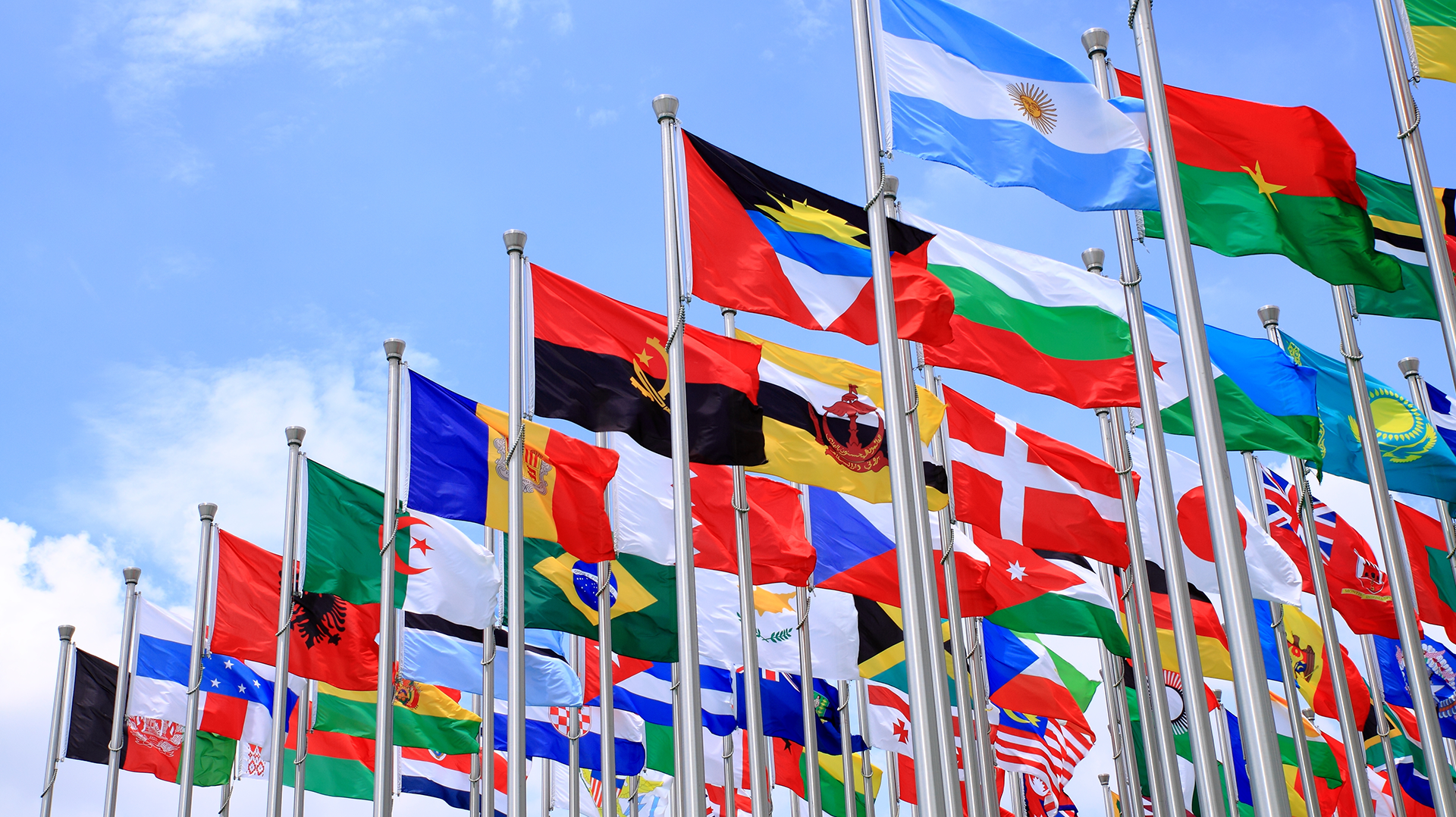RENEWED TERRORISM THREAT?
Terrorism may be taking on different names and targets, but unfortunately, it must remain very high on the list of concerns for security officials in both government and business in multiple corners of the world, election-year politics, notwithstanding. In recent Congressional testimony, the FBI and Director for Central Intelligence have stressed two points:
- through the concerns it has repeatedly raised about the serious national security consequences we face because of our porous border with Mexico. Our sources also report that we have raised concerns with Canada, too, because it has allowed questionable (in our view) individuals to enter the country. China’s Ministry of State Security, Hizballah, Hamas, and the Houthis are among the less savory militant organizations, believed to have smuggled agents into the U.S. via this corridor.
- through its stark warnings about the vulnerability of critical U.S. infrastructure and businesses to unprecedented cyberthreats sponsored by state actors. SocoSIX sources in both the U.S. and Europe reiterate this point in the strongest terms. China, Russia, North Korea, Iran, and Cuba all pose continuing, and apparently growing, threats.
ISIS REDUX?
Repercussions are continuing from the 22 March devastating attack by Islamic militants at the Russian concert hall in which more than 140 people were reported killed. That attack, the deadliest in Russia in over two decades, was claimed by ISIS and was presumably carried out by its Central Asian offshoot known as ISIS-Khorasan (ISIS-K). (See Comment.)
On 2 April, the Russian Foreign Ministry announced that it is seeking a way to work normally with the Taliban government in Kabul. Though unstated, one principal reason is the antipathy both countries share for ISIS-K. The Russian Embassy in Kabul was bombed by the group in September 2022, while Chechens and other disaffected former Russian citizens are among the most fervent supporters in multiple ISIS branches. Kabul has been in an open state of war with ISIS-K since it killed 28 Taliban members in its 26 August 2021 Kabul airport bombing.
Countries which are also monitoring the situation closely are those in the European Union. After raising his country’s terror alert on March 25, French President Emmanuel Macron said that ISIS-K had tried to commit several actions on French soil. With the Summer Olympics approaching, the memory of bloody assaults by ISIS against France still fresh, and Marine La Pen‘s ultra-nationalist rhetoric coming on strong, Macron needs to show he can withstand any challenge to France’s security. Belgium also detained a group of individuals accused of plotting to attack sites in the country. An ISIS connection is still being probed at this writing.
Comment: ISIS-K – or ISIS-Khorasan Province is one of the Islamic State’s most potent offshoots. Formed in January 2015 in Afghanistan, it remains very active primarily in Afghanistan and Pakistan. ISIS–K seeks to destabilize and replace current governments within “historic Khorasan region,” with the goal of establishing a caliphate across South and Central Asia, governed under a strict interpretation of Islamic sharia law. Sources in both London and Washington tell us that ISIS-K has expanded its presence beyond Afghanistan, Iran and Pakistan, and has already evidenced that it has a capability in Europe, Turkey, and Russia.
Because of its responsibility for the deadly 26 August 2021 attack during the chaotic Kabul evacuation, ISIS-K is being watched as carefully as possible by American intelligence. Our USG interlocutors would neither confirm nor deny that we had warned Moscow of the pending March attack (although this is now in the public record). They were likewise coy when asked if we had also alerted Tehran before the deadly 25 January 2024 car bombings orchestrated by ISIS-K in Kerman, Iran, which killed 94 persons. However, UK sources suggested, with some certainty, that the U.S. had done so (possibly through British embassy channels), but the news either was not relayed to the appropriate authorities or was ignored. End Comment.
IS DAMASCUS THE NEW SARAJAVO?
The probable Israeli destruction of Iran’s consulate annex in Damascus on 1 April was a brilliant tactical move but will it become a Sarajevo moment? A strategic blunder which might plunge the region – including Israel – into an even deeper morass? Unlikely, but time will tell.
The precision attack killed several Iranians, including seven members of the Islamic Revolutionary Guard Corps (IRGC) Quds Force, the government’s praetorian guard. Iranian sources tell us that the dead include Mohammad Reza Zahedi, the overall commander of Iran’s forces in Syria and Iran; his deputy, Mohammad Haj Rahimi; and a third senior commander. Iran’s Ambassador to Syria called the deaths a “heinous crime,” and Russia has taken the bombing to the UNSC because it involved an attack on consular property protected by international convention. Iran has promised to respond at “an appropriate time and place.”
Comment: Zahedi’s death marks the most serious personnel loss by the IRGC since the American assassination of the overall Quds leader, General Qassim Soleimani, during the Trump administration. Unlike the Americans, who publicly took ownership for this action, there has been no official comment from the Israelis nor is there likely to be one. This allows conspiracy theorists an opportunity to blame the U.S. for the deed — despite our denials. We must ensure that pro-active defensive measures are in place at all U.S. diplomatic and military installations in the Middle East to deflect reprisals. Prominent, trademarked U.S. businesses should likewise adopt a lower profile.
A source in the NSC opined that some in the current Israeli government want Iran to push Hizballah into launching a sufficiently large attack against Israel to provoke a broad scale response. Fortunately, the U.S. and other governments have convinced milder voices in the Israeli war cabinet not to sanction such a gambit.
Although the Prime Minister remains firm in his commitment to attack Rafah in his effort to trap or kill more of the Hamas political and military leadership in Gaza, he will need to utilize all his many Machiavellian talents to keep the Biden Administration covering his back while maintaining his own hold on power. It is no secret, our source suggested, that Netanyahu would like nothing more than to get the U.S. involved in a military confrontation with Iran, while he finishes off Hamas.
Many in the USG are aware of this desire, and there are those who side with Bibi. However, this is an election year. According to our source, this is one reason why the U.S. would like, ideally, both (a) to put brakes on the current Gaza offensive and secure the release of any remaining hostages and (b) to have a new Israeli leadership team who might be more amenable to listening to advice from well-intentioned friends. Neither prospect seems likely in the short term, according to this source. End Comment.
ASIAN FLASHPOINT AT THE SECOND THOMAS SHOAL?
The waters have heated up in the South China Sea, especially within the vicinity of Second Thomas Shoal in the Spratly Islets which is claimed by several countries but, principally by The Philippines and China. The shoal, which is an underwater low tide elevation reef (LTE – some features visible at low tide), lies less than 200 nautical miles from the Philippine Island of Palawan and over 600 nautical miles from the Chinese island of Hainan.
Since 1999, the Philippines has maintained a presence over the shoal in the form of a small garrison which is located on board a carefully submerged Philippine navy cargo ship, the Sierra Madre. In 2016, an international tribunal awarded sovereignty of the shoal to the Philippines as part of the Exclusive Economic Zone provisions of the UN Convention of the Law of the Sea. Both China and the Philippines are members of UNCLOS (the USA is not a party).
China will not accept this ruling. And now that it has the largest navy in the world, it appears disinclined to accept the loss of face which it (or President Xi Jinping) will encounter if it concedes its stated sovereignty over any or all of the Spratly chain of islets and reefs which include Second Thomas Shoal. The repercussions for other spurious claims in the South China Sea would seem too great.
To make its point clearly understood, over the past month, China has regularly disrupted with water cannons and actual collisions efforts by The Philippines to resupply its small miliary mission with provisions and a change of crew. The State Department has protested vehemently against this “clear disregard for international law.” China retorted that The Philippines must stop encroaching on Chinese water and cease making any statements that may escalate tensions and stop all acts of encroachment in Chinese waters. Manila immediately called for Chinese vessels to leave the area immediately.
Comment: The problem is that neither side is prepared to leave. Manila has the law and (allegedly) the U.S. and several other countries on its side. China has its size and might which – in the old days, at least – would presumably give it right.
The abrasive Chinese actions, by new coast guard cutters which dwarf the Philippine’s supply vessels portend an escalation just waiting to happen. The U.S. has just renewed its defense treaty with The Philippines which gives us access to several outlying areas for small bases. The Philippines has initiated other defense accords with several other countries, as well. The nux of the problem is whether the U.S. will actually support the Philippines if China decides to blockade or “quarantine” the shoal or actually eject the men on the Sierra Madre? Our record in support of our allies in recent years has not been especially stellar. But we need to have contingencies in place for a serious Chinese response if we do. End Comment.
TURKEY: STRONGMAN ERDOGAN’S AKP TROUNCED IN LOCAL ELECTIONS
Last year, Turkey’s President Erdogan won reelection by a wider margin than anticipated, even though it was considerably less than his earlier electoral successes. If he was anticipating a similar result at this year’s all-important municipal elections, then he was sorely disappointed. In what may well be a harbinger for a similar result facing the Conservatives in the UK in its forthcoming local elections, Turkey’s opposition Republican People’s Party (CHP) won elections in 49 of Turkey’s 81 municipalities. The sweep included decisive mayoral victories in Turkey’s five largest cities, including Istanbul, where CHP Istanbul Mayor Ekrem Imamoglu was reelected.
Comment: Most of our Turkish interlocutors are ecstatic. Above all, they view this election as a testament to the Turkish people who voted for democracy in the face of rising authoritarianism. Still, the main reason for the public’s disillusionment was economic: Surging inflation has nearly broken the middle class, seemingly worsened by the President’s efforts to move towards a more orthodox approach. The lack of progress to restore services and housing, and employment to the wide swath of the country destroyed in last year’s earthquake was another sore point for voters. Despite these negatives, Turkey remains a country of enormous potential. Investors and business interests in general would be wise to find ways to stake out their interests in an economy which is bound to come back into its own sooner rather than later. End Comment.





